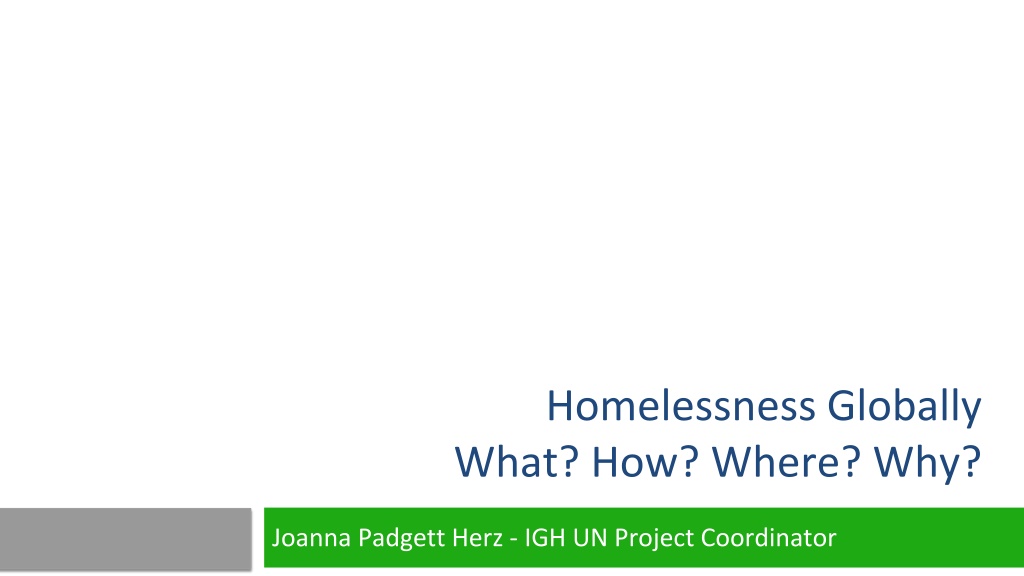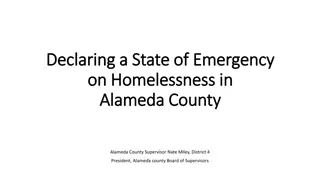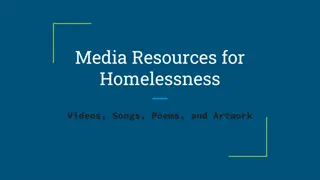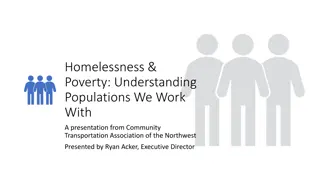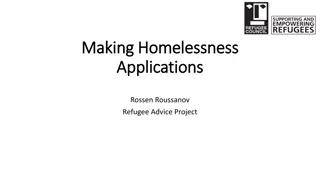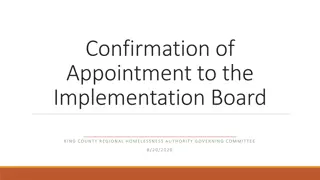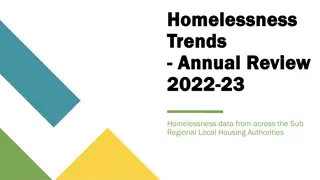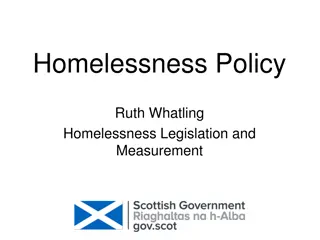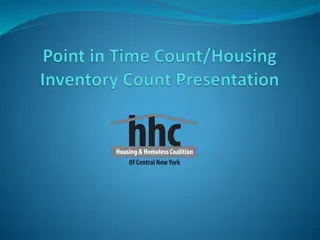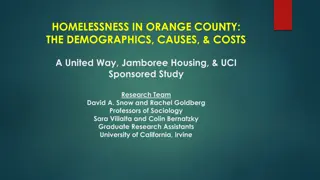Understanding Global Homelessness: Causes, Definitions, and Implications
Homelessness is a complex issue affecting individuals and communities worldwide, stemming from factors like poverty, lack of affordable housing, domestic abuse, and more. The UN has implied definitions for homelessness, categorizing those without shelter due to various reasons. Measurement and definition are crucial to address this crisis, as data on homelessness is often inconsistent. Various countries employ different methods to measure homelessness, emphasizing the need for accurate data collection. Understanding who is most at risk, such as specific genders, races, and age groups, is essential for targeted solutions.
Download Presentation

Please find below an Image/Link to download the presentation.
The content on the website is provided AS IS for your information and personal use only. It may not be sold, licensed, or shared on other websites without obtaining consent from the author. Download presentation by click this link. If you encounter any issues during the download, it is possible that the publisher has removed the file from their server.
E N D
Presentation Transcript
Homelessness Globally What? How? Where? Why? Joanna Padgett Herz - IGH UN Project Coordinator
How has homelessness been defined by the UN? Those lacking shelter to live in because of poverty Refugees Diasporas Marginalized communities who have experienced historical atrocities Those whose shelter had been destroyed by natural disasters - rendered homeless by.... It hasn t. But some definition s have been implied...
What is homelessness? Homelessness is a condition where a person or household lacks security of tenure, rights and ability to enjoy social relations, including safety. Homelessness is a manifestation of extreme poverty, and a failure of multiple systems and the implementation of human rights. habitable space with Using this definition we identify four broad categories of homelessness: People living on the streets or other open spaces; People living in temporary, emergency or crisis accommodation; People living in severely inadequate or insecure accommodation; and People who lack access to affordable housing. - Civil Society Declaraion
How do people become homeless? Poverty - cycles of poverty Lack of affordable housing - housing market instability Domestic abuse Discrimination and violence War Migrant and refugee status Mental health concerns Lack of adequate housing
Where are people homeless? How many people are homeless? Current global data on homelessness is inconsistent and unreliable.
How are countries measuring homelessness? Australia - via a street count Russia - via a census A person who is in a dwelling that is inadequate; or has no tenure, or if their initial tenure is short and not extendable; or does not allow them to have control of, and access to space for social relations. Data was collected using records about residences or housing payments.
Why is measurement and definition so important? Which gender(s) are most likely to be homeless? Which races/ethnicities are most likely to be homeless? Are parents more or less likely to be homeless? Are they single or together? Are children often homeless without parents? What age group is most likely to be homeless? Because we need to know...
Why is measurement and definition so important? - Identify trends in rates of homelessness - Identify what does and does not affect the rates of homelessness - Begin reducing homelessness globally - Determine necessary social protection systems to implement to end homelessness Because without it, we can t...
2018 Global Report on Trafficking in Persons What UN global measurement can do
